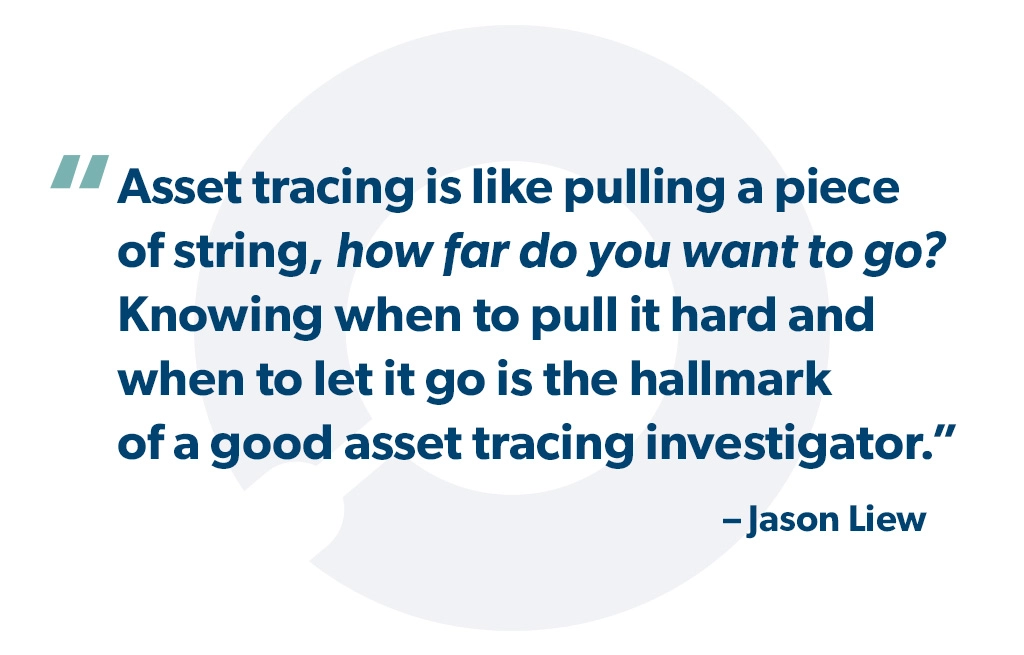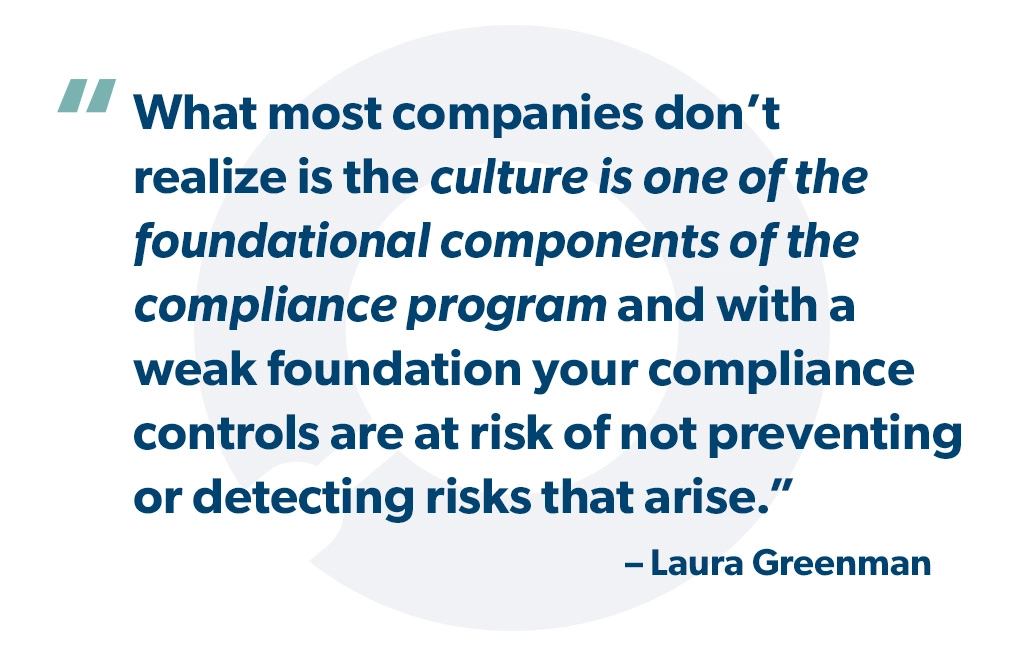As StoneTurn celebrates two decades in business, our professionals reflect on the industry’s evolution, and look to the future for predictions on the market, the profession, and what challenges and opportunities are on the horizon.
Jason Liew, Partner, Singapore
When it comes to asset tracing, what are the top trends you’re advising clients on?
First and foremost, do it early. Do not wait until you have an award or judgment has been handed out as it is already too late. By this time, the risk of asset dissipation by the counterparties increases significantly.
Second, be creative. I’ve found that clients want to work with creative teams who can come up with solutions. Asset tracing is not a new thing and with advances in technology, these days it requires a team to be good detectives and find creative ways to locate assets. People will hide their assets in the most unlikely places, and it’s only experience and expertise gained over time that can help find them.
Third, understanding local context. Asset tracing is truly so different jurisdiction to jurisdiction. Understanding the source of information, quality and how to interpret the information to get you to your end goal is key.
What is a common element of asset tracing that is overlooked or forgotten about?
I think it’s more of an emphasis on education and socialization of asset tracing to our clients. Many people have the misconception that we are looking into a database, like on CSI, and in 5 seconds we get a whole list of data and information. While this might work to some degree in other jurisdictions where record keeping is mostly digital, it is very different in Asia.
Asset tracing is like pulling a piece of string, how far do you want to go? Knowing when to pull it hard and when to let it go is the hallmark of a good asset tracing investigator. This is similar to the game series, where I used snakes and ladders to represent the different paths you can take and roadblocks you may encounter. We also put a lot of importance on scoping, allowing us to understand the cost effects and the most efficient way of doing the work. By scoping, we are better positioned to act as a trusted adviser to our clients. This way the client has better control of the cost, and we have flexibility in chasing the most promising leads.

Laura Greenman, Managing Director, New York
When it comes to compliance, what are the top trends you’re advising clients on?
Recently there has been an increase in clients wanting assistance in assessing their overall Compliance Program against the DOJ’s Evaluation of Corporate Compliance Programs in order to identify any areas for enhancement. This is both in relation to ongoing investigations as well as proactively to understand the effectiveness of their program before wrongdoing occurs. We assist companies by testing the design and operating effectiveness of their policies, processes and controls and advising on ways to strengthen their Compliance Program.
Where do you hope to see the consulting industry in the next 5 years?
I hope the consulting industry will have grown in its alignment and use of data analytics and other integrations with technology. We’ve all seen that AI is making its way into different industries and it will be interesting to learn and grow collaboratively with our data experts to revolutionize how we approach our client’s problems and asks.
Cindy Yu, Managing Director, San Francisco
What are the critical skills for someone who wants to succeed in compliance?
First, would have to be very detail oriented. When it comes to compliance, you’re reviewing existing policies and procedures on behalf of organizations and whether or not they are in compliance with those procedures.
Second is people skills. In order to work effectively, you need not only to be able to manage upwards and downwards within the firm, but also manage various stakeholders that are involved in the compliance project. That requires soft skills to understand where each party’s viewpoints and perspectives are.
The third would have to be patience. Monitorships can be as long as 3-5 years and things do not necessarily move as fast as you like—especially from an investigation’s mindset. It’s important to remind yourself to have patience and follow up with top-of-mind communications.
What is a common element of compliance that is overlooked or forgotten about?
Cultural sensitivity. A lot of projects are global or international in nature and we need to keep in mind that what is working in the United States might not work in other cultures. For example, I was working on a project that needed a whistleblowing hotline. We were wondering why there wasn’t a lot of activity after we set up the hotline. After investigating the country’s cultural background, we realized that in this culture, employees were accustomed to going to their manager to report issues instead of using the hotline. Being dialed into other culture’s needs allows us to come up with solutions that will work across cultures in varying scenarios.
To receive StoneTurn Insights, sign up for our newsletter.










